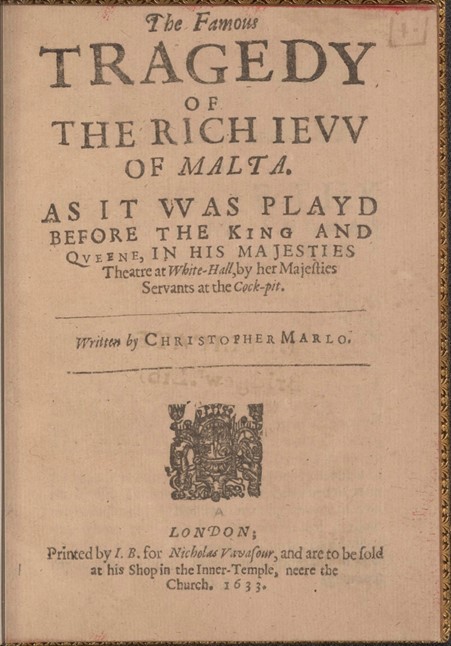
Editing Lost Copy-Texts
Christopher Marlowe’s Plays and Poems
Supervisory Team: Dr Rory Loughnane (Kent), Dr Daniel Starza Smith (King’s)
Based at: Kent
KOM Theme: A – Technologies of Knowledge
Early modern literature – the dazzling and enormously influential writings of Shakespeare and his contemporaries – has come down to us in a mixture of printed and manuscript sources. Yet these authors’ original manuscript documents, written in their own hand, have mostly been lost. Their work is preserved in transcripts made by others or in printed texts, each at least one step removed from the lost original manuscripts, and in many cases introducing all sorts of error and variety that make it hard for us to see what an author originally wrote. This doctoral project asks what we can learn by investigating these ‘lost’ documents – and what techniques we need to investigate them at all, since they no longer exist.
The project focuses on one of England’s most important early modern authors: Christopher Marlowe (1564-1593). Marlowe’s drama revolutionised the English stage and had a profound influence on Shakespeare – but no-one ever made an early collection of them, and his murder at the age of 29 meant that few of his works were published in his own lifetime. None of his manuscripts are preserved, and modern readers must rely upon those versions of his works that have, almost in totality, been preserved in print.
The project asks how we can try to understand what those missing manuscripts might have contained, using the evidence that is preserved. Working on this project requires a detailed understanding of early modern handwriting, scribal habits, and networks of textual transmission (e.g. through friendship groups, patronage relationships, professional playhouse activity). The project engages with research about authorship, attribution studies, and canon creation – that is, attempting to identify an author’s habitual practices of writing and determining what it is that they are most likely to have written. The doctoral project will contribute to research for an ongoing editorial project: The Oxford Marlowe: Collected Works with Oxford University Press. It is expected that the applicant will have a research background in early modern studies, and at least some working knowledge of early modern palaeography and print culture.